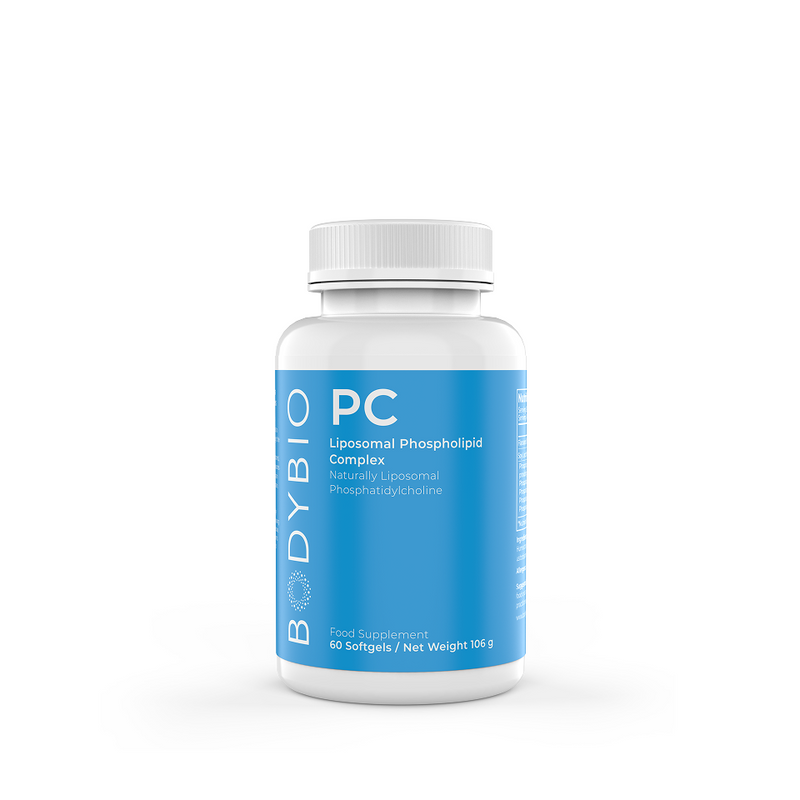Phosphatidylcholine: A New Approach to the Future of Aging
Key Takeaways:
Key Points:
- Aging is part of being human — but with so many advancements in science, it can feel frustrating that we don’t have a better answer to tackle the degenerative diseases that plague so many older adults, including Alzheimer's and dementia.
- Luckily, several lifestyle factors have been shown to help prevent aging and cellular degeneration. Eating a healthy diet, exercising regularly, using your brain, and adding essential supplements can help.
- Recent scientific advancements also show that the actual structure of your brain and brain cells play an important role in preventing aging-related diseases. Lipid replacement therapy (with phospholipids) can help increase the synapses in your brain and repair aging neurons.
It’s estimated that 1 in 9 adults struggle with progressive degenerative diseases, like Alzheimer’s and dementia.
We’ve accomplished incredible scientific and technological feats over the last century, but we haven’t made huge progress to slow human aging and the diseases that often come with it.
The science behind aging is complicated. There’s no “quick fix” or special pill you can take to prevent it. For many, the memory loss and confusion that often comes with growing old is just another part of being human.
But it shouldn’t have to be.
Scientific advancements are quickly helping us understand what causes aging — both the environmental factors (diet, lifestyle, toxin exposure) and the structural changes that happen in the brain. By tackling both of these, we may be able to create the “perfect storm” of factors to prevent (or at least, slow) the process of aging.
Table of Contents:
- Is It Possible to Slow Down Aging?
- Polyunsaturated Fats and the Aging Brain
- Exciting Developments in the Future of Aging
- Other Ways to Prevent Cellular Aging
- Phosphatidylcholine Is a Powerful Nutritional Intervention for Structural Brain Aging
Is It Possible to Slow Down Aging?
A healthy brain has a healthy synaptic structure — with information passing from neuron to neuron (via synapses) without interruption. In the case of brain aging, we may see disruptions in these synapses, which result in issues like memory loss, gaps in word recall, and even degenerative diseases.
But what causes these disruptions?
For years, scientists have focused on the lifestyle factors that play a key role. A healthy diet, regular exercise, and even keeping your mind sharp by reading or practicing a second language can lower your chances of brain aging.
The most recent scientific advancements, however, encourage us to take one step further and look at the brain structure itself and how improving that can help us slow down aging. Changing or preserving this structure can help us prevent aging in a new way.
Polyunsaturated Fats and the Aging Brain
Brain aging and malnutrition have a lot in common. When we look at brain structure, we have to look at the nutrients and factors that make up that structure.
Studies show that just a handful of targeted supplements (B vitamins, vitamin C, flavonoids) can slow the aging brain and return nutrients and function back to the hippocampus and prefrontal cortex.
Polyunsaturated fats (PUFAs, aka omega-6 and omega-3 fats) are of particular interest — since these help to make up the brain cell membrane (again, brain structure), which is needed for transmitting signals. According to a recent study, PUFAs in the form of phospholipids are more bioavailable and effective at preserving and nourishing the cell membrane than other forms, like free fatty acids.
This explains why lipid replacement therapy may be key to preventing brain aging (from mild cognitive impairment to degenerative diseases like Alzheimer's). No longer are we relying on lifestyle factors alone to help us prevent aging — we can actually look at what makes up our brains and target the nutrient deficiencies responsible for cognitive decline.
Exciting Developments In the Future of Anti-Aging
A recent study explains, “Brain aging increases the risk of cognitive impairment, which manifests as a progressive loss of neuron function caused by the impairment of synaptic plasticity via disrupting lipid homeostasis.” Translation? Not enough healthy fats in the brain leads to loss of brain function.
For this reason, researchers are looking to lipid replacement therapy as an exciting development for anti-aging. Phosphatidylcholine, phosphatidylserine, and plasmalogens, specifically, are the primary components of neuronal membranes — directly contributing to the brain’s structural integrity.
We tend to lose phospholipids as we age (up to 20% by the time we reach our 80s) which means our brain structure could be at risk. By replacing the lost phospholipids, we can protect our brains and preserve cell structure.
Exciting developments in aging show that achieving lipid homeostasis can help reverse disruptions in synapses, protect our cell membranes, and help prevent aging-related conditions (alongside diet, exercise, and a healthy lifestyle).
Other Ways to Prevent Cellular Aging
Aging occurs for several reasons, but they all go back to the destruction of the cell.
Oxidative stress and DNA damage impact our cells, eventually causing them to break down. This is what we call aging.
While we can’t prevent aging entirely, giving our cells the nutrients they need to regenerate is extremely helpful — and in studies, shown to positively impact brain function.
Here are some science-driven ways to nourish your brain and encourage optimal aging:
1) Eat a Diet of Nutrient-Dense Foods
Eating plenty of healthy fats, antioxidants, polyphenols, vitamins, minerals, and more are essential to nourishing your body, brain, and cells. Studies show that diets high in fruits, veggies, fish, and clean meats help to prevent the effects of aging, across the board.
2) Exercise Regularly
Exercise of any kind can help to increase blood flow to the brain. It’s also great for generating new brain cells while encouraging the growth of new blood vessels. Any kind of exercise is great for brain health, memory retention, and better focus. Simply taking a walk every day or visiting your local gym for a workout class can greatly decrease your chances of developing a degenerative disease.
3) Avoid Toxin Exposure
Heavy metals, in particular, play a strong role in neural degeneration. These and other toxins can accumulate in the brain and become too much for your cell membrane (and thus, your cells) to filter. This eventually can lead to oxidative stress and DNA damage.

Phosphatidylcholine Is a Powerful Nutrition Intervention for Structural Brain Aging
Phospholipids make up about 50% of the entire cell membrane. Acting as a filter, the cell membrane keeps free radicals out of the cell and allows essential vitamins, minerals, and nutrients in. This alone is an important reason to look at lipid replacement therapy as a solution to aging.
As we mentioned before, there’s no “quick fix” to aging, but making sure you consume enough healthy fats — phospholipids and pure essential fatty acids — is your next best bet. The best way to prevent aging is to create the ideal environment and provide the right resources for our brains, bodies, and cells to thrive.
Building stores of key nutrients is an important part of that.
Anyone looking to prevent aging (especially in the brain) should consider a high-quality phospholipid supplement like BodyBio PC alongside healthy changes in lifestyle habits.DiLoreto, R., & Murphy, C. T. (2015). The cell biology of aging. Molecular biology of the cell, 26(25), 4524–4531. https://doi.org/10.1091/mbc.E14-06-1084
Xiong, W., Fang, B., Wang, X., Zhang, M., Du, M., Sun, J., Chen, J., Li, Y., Sun, C., Lei, X., Zhang, X., & Ren, F. (2023). Dietary Lipid Intervention in the Prevention of Brain Aging. Engineering. https://doi.org/10.1016/j.eng.2023.04.012
Leitão, C., Mignano, A., Estrela, M., Fardilha, M., Figueiras, A., Roque, F., & Herdeiro, M. T. (2022). The Effect of Nutrition on Aging—A Systematic Review Focusing on Aging-Related Biomarkers. Nutrients, 14(3), 554. https://doi.org/10.3390/nu14030554







